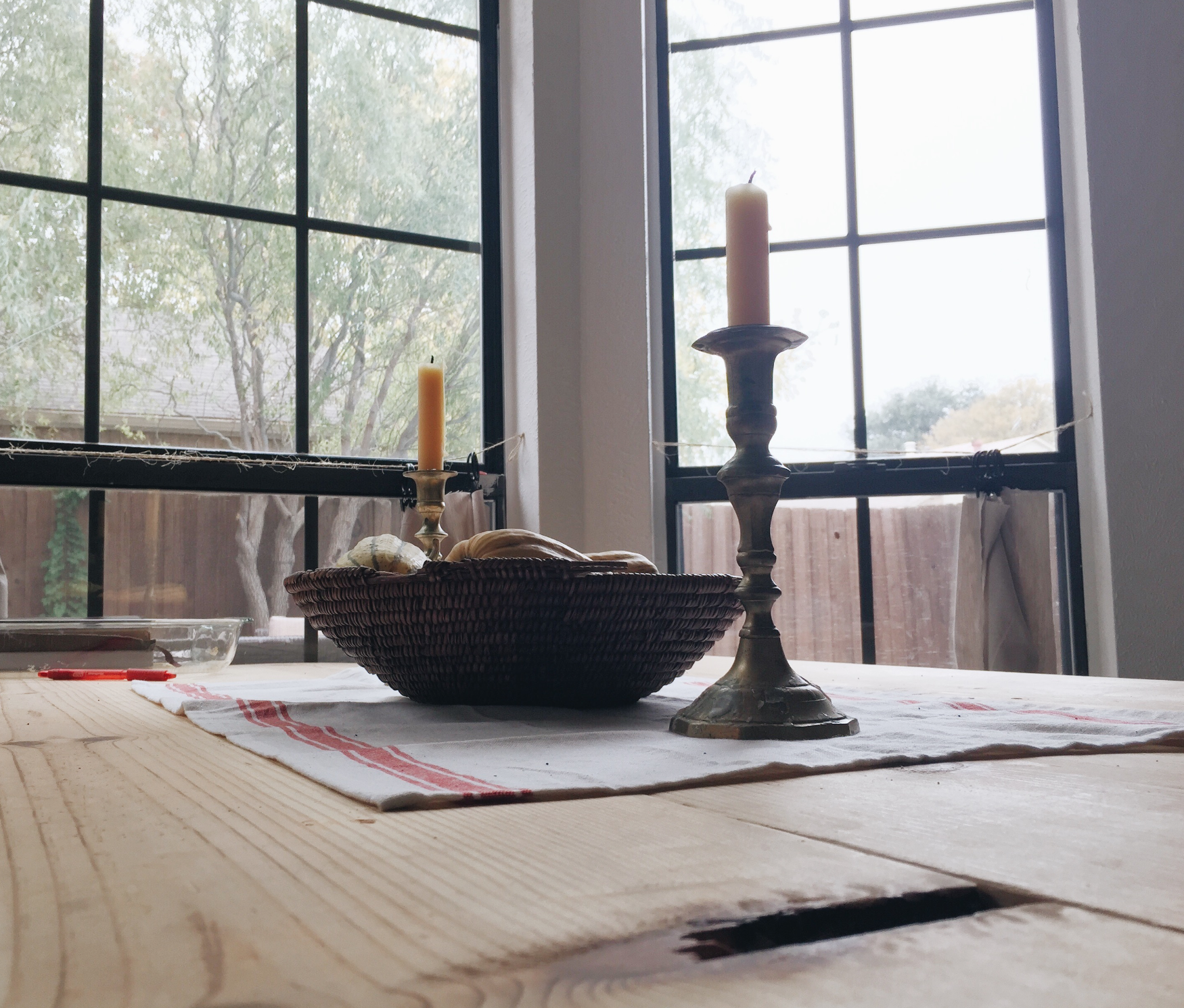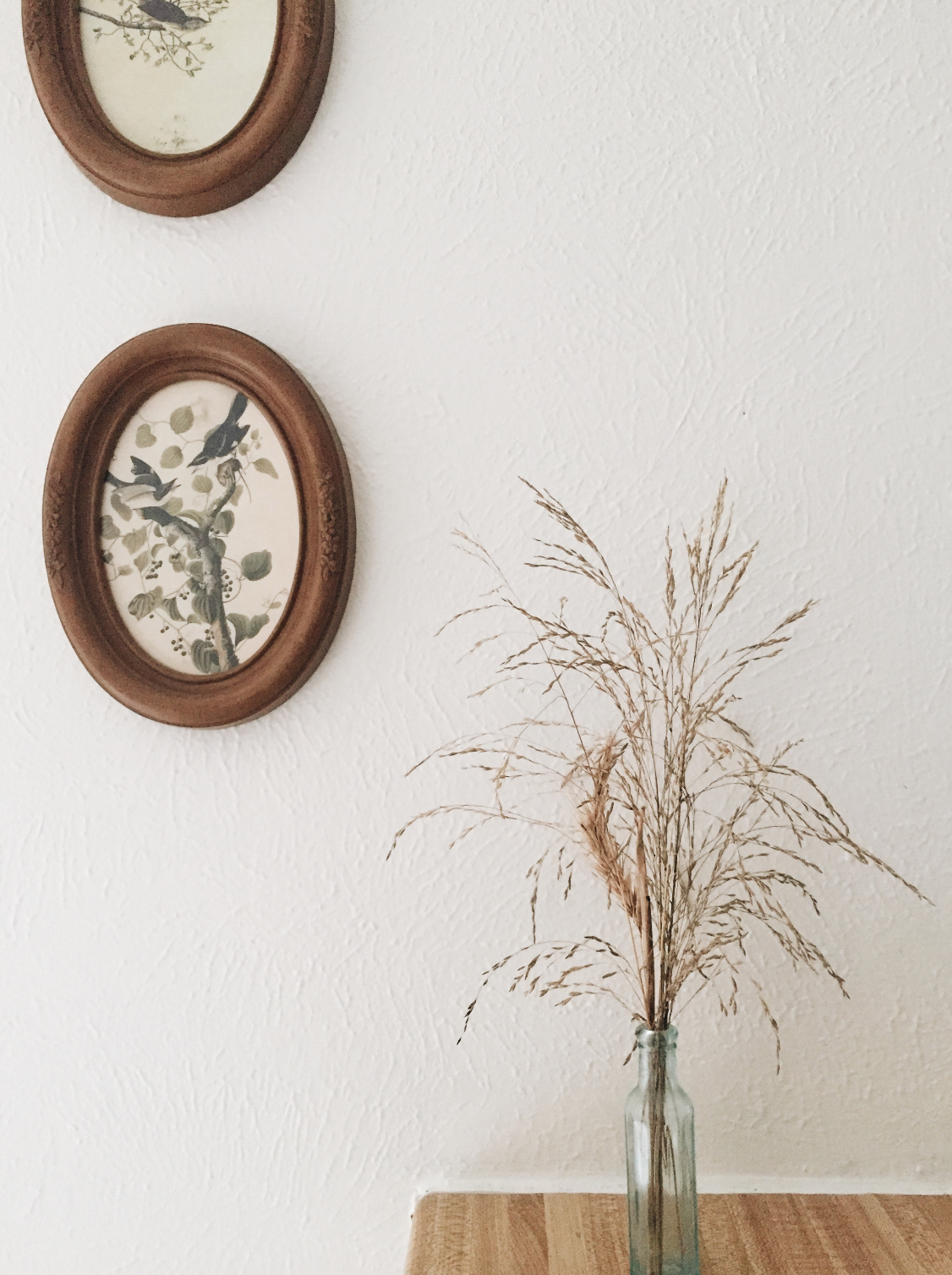Practicing Hospitality Imperfectly
One of the seven values of our home is the practice (that is the making mistakes along the way of learning) of hospitality. When we practice hospitality instead as entertainment, that is, the act of amusing or performing for our guests, we miss a very important quality in the intended expression: the administration of care to brokenness, the being of a hospital.
Of the making of Pinterest boards and Hygge books and shiplapped magazines there is no lack, but what does it mean to be a hospital at the dinner table or over coffee or in the doing of daily tasks around the house? How is doing laundry or washing dishes or having difficult conversations or listening an act of hospitality in a culture that wines and dines and lauds the farm to table spread in an autumn cornfield at dusk? When these latter expressions are the pièce de résistance, the thing we think of when we think of hospitality, how does the mere folding of socks, packing of lunches, and being seen with your hair undone express a better hospitality?
These are the questions that have rattled around in me for the entirety of my life. From my earliest memories, I have been surrounded by the earthly, simple, practical act of hospitality. For years of my teens we had three different families living with us in our home, giving over entire floors of our house to them, siblings squished in bedrooms, dinners rowdy affairs. I don't want to paint those experiences as perfect, they were, without doubt, some of the most difficult of my teen years (and, I'd venture, for the adults as well), but they happened. The sharing of resources and home and opinions and reputations was commonplace in our home. Some of the most painful memories of my life happened in those spaces and others, where our family was meshed with another family, imperfectly but still done. The option for a closed door was never one considered. This way of life felt natural to me, still feels natural to me, although I am learning it carries dysfunction in me too: a belief that saying "no" is not an option. This is why I am still learning to practice hospitality and not perfect it.
How does one practice hospitality, the being a hospital, and yet also confess they are not the Great Physician and there are some maladies even a good soup and hearty homemade bread cannot fix? I do not have the answer to this question, though it seems like it should be easy, but here is how we generally think about our home and hospitality:
We can only give what we can give. If we do not have it, we cannot give it. If we cannot give it, we cannot give it. But Christ can and so sometimes the best act of hospitality is to say: I cannot, but he can. To administer the grace which says, "We do not have what you need to become better. But we do have Christ."
We sometimes must let things be awkward. If every space in an evening or a life must be filled with small talk or inventions of stories, there is no space for the awkward growing pains of maturity to stretch. Being quiet for longer than the noted beat of acceptable silence reminds us in sometimes painful ways that not all is resolved yet, that we are still in process, and in need. Most of us ramble to fill that space and in doing so we crowd out the small voice of the Spirit who may want to move the conversation in another direction entirely. Part of true hospitality is times of quiet, sometimes awkward quiet.
And yet, we must also move toward the person in our home, initiating questions, drawing them out, being a "there you are" person instead of a "here I am" one. We ask questions like, "How does your heart feel about this?" or "What is this sadness teaching you about God?" or "What is being revealed in your anger/fear/pride/hurt?" instead of only "How was your day?" "How is your job?" "How are your kids?" The heart is the wellspring of life and so we must get at the heart if we are to minister life.
We eat good, nourishing, healthy food at the table almost every night. There is no magic here, no fix to the world's problems, no Pinterest worthy spread. There is only true food that nourishes a body because bodies matter too. Hospitality is not only about caring for the emotional or relational needs, but the physical ones too. We light candles every night (I have some beeswax ones in squatty jelly jars right now, if tapers don't work for families with young kids), we use cloth napkins, we eat on real (but mismatched) plates. We nourish the soul while we're nourishing the body by using real things instead of disposable ones or the finest china. We want to remind ourselves that we are real things in a real world on a real earth and if hospitality doesn't extend both inside our bodies and outside our front door, it's not real hospitality.
We sometimes say "No." As noted above, this one still feels wildly uncomfortable in my mouth. I have a lifetime of saying "Yes" behind me. Yes to the extra mile. Yes to the extra cloak. Yes to whole spaces of a home. Yes to open doors. And yes to open lives. But sometimes saying "No" is best. I think generally folks are either "Yes" folks or "No" folks, and we each must learn to curve into the unnatural word, turn it over in our mouths, utter it occasionally until we realize the world won't end if we say it aloud, and then practice saying it, sometimes saying it at the wrong time or in the wrong way, but practicing it nonetheless. I am learning to say "No" now more than ever before and this too is an act of hospitality, I am learning. It is saying that I am not the Great Physician and I cannot solve the world's problems, I cannot even solve my own, and so sometimes I must say it right out loud: no.
If you come to the Wilbert home for dinner or coffee or breakfast or Christmas or Easter or homegroup or a weekend or a year, you will feel each of these things in some way in the way we practice hospitality today. Because it is something we value, it is something we hold dearly and inspect often, looking for holes or ways to make better or ways we have failed to make good. We value hospitality, but we are far from perfect at it. Christ is the perfect expression of hospitality, the one who entered in and allowed himself to be approached, the one who brought the best wine and ultimately showed himself to be the best wine. We look to him not as our model of hospitality, though, but as the only one who "makes all the sad things come untrue."
Here are some books I've read through the years that have helped shape, right, and challenge my perspective on hospitality:


















